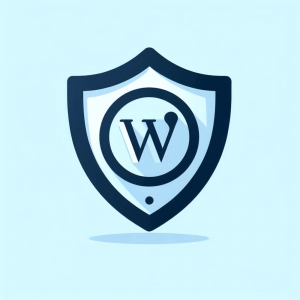
WordPress powers over 40% of the internet, making it a prime target for hackers. Cyber threats such as malware, brute force attacks, and data breaches can compromise your site’s security, damage your reputation, and even lead to loss of sensitive data. But don’t worry—securing your WordPress website doesn’t have to be complicated. In this guide, we’ll walk you through essential security measures that every website owner should implement to protect their site from hackers.
1. Keep WordPress, Plugins & Themes Updated
Outdated WordPress core, plugins, or themes are a major security risk. Hackers exploit vulnerabilities in old versions, so make sure you:
✅ Enable automatic updates for WordPress core files.
✅ Regularly update your plugins and themes (delete unused ones).
✅ Use only trusted plugins from the WordPress repository or reputable developers.
2. Use Strong Usernames & Passwords
Did you know that brute force attacks try thousands of username-password combinations to gain access? Strengthen your login credentials by:
🔹 Avoiding the default “admin” username—create a unique one.
🔹 Using a strong password (mix of uppercase, lowercase, numbers, and symbols).
🔹 Enabling two-factor authentication (2FA) for an extra layer of protection.
3. Install a Security Plugin
Security plugins act as a firewall, blocking malicious activity before it happens. Some top options include:
🔹 Wordfence – Provides firewall protection and real-time security monitoring.
🔹 Sucuri Security – Monitors for malware and prevents brute force attacks.
🔹 iThemes Security – Scans for vulnerabilities and enforces strong security rules.
4. Limit Login Attempts & Enable CAPTCHA
Hackers often try multiple password attempts to break into your website. Reduce this risk by:
✅ Limiting login attempts with a plugin like Login LockDown.
✅ Adding CAPTCHA verification to prevent automated bot attacks.
✅ Blocking IPs that repeatedly fail login attempts.
5. Use Secure Hosting
Your hosting provider plays a crucial role in website security. Opt for a reliable and secure hosting provider that offers:
✔️ Daily backups to restore your site in case of an attack.
✔️ SSL certificates to encrypt data.
✔️ Firewall protection to block malicious traffic.
TownHost provides secure, high-performance hosting with built-in security measures. Check out our hosting plans here: TownHost Hosting & Development
6. Enable Website Backups
In the event of a hack, a recent backup can restore your website quickly. Set up:
🔹 Daily automatic backups using plugins like UpdraftPlus or Jetpack.
🔹 Off-site backups stored on cloud services like Google Drive or Dropbox.
🔹 One-click restore options to recover your site instantly.
7. Secure Your wp-config.php & .htaccess Files
Your wp-config.php and .htaccess files contain sensitive information. Protect them by:
🔒 Changing file permissions to read-only (444).
🔒 Moving wp-config.php to a non-public directory.
🔒 Adding security rules to .htaccess to block access to critical files.
Cyber threats are constantly evolving, but by following these WordPress security best practices, you can protect your website from hackers and keep your data safe. Investing in secure hosting, strong passwords, and regular updates can make all the difference in preventing cyberattacks.
Need help securing your website? Explore our secure hosting solutions at TownHost.
